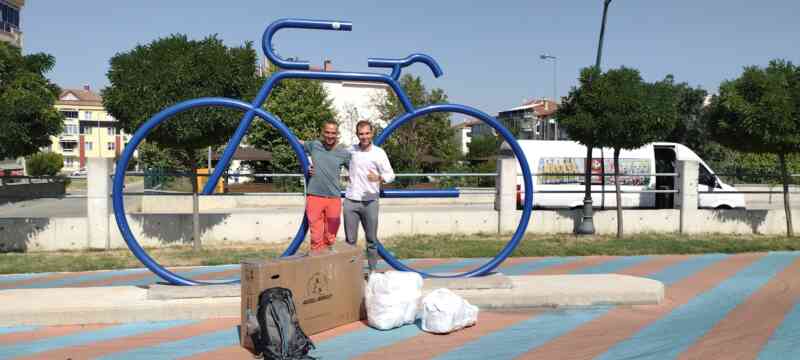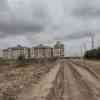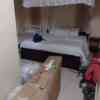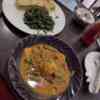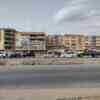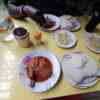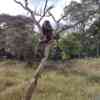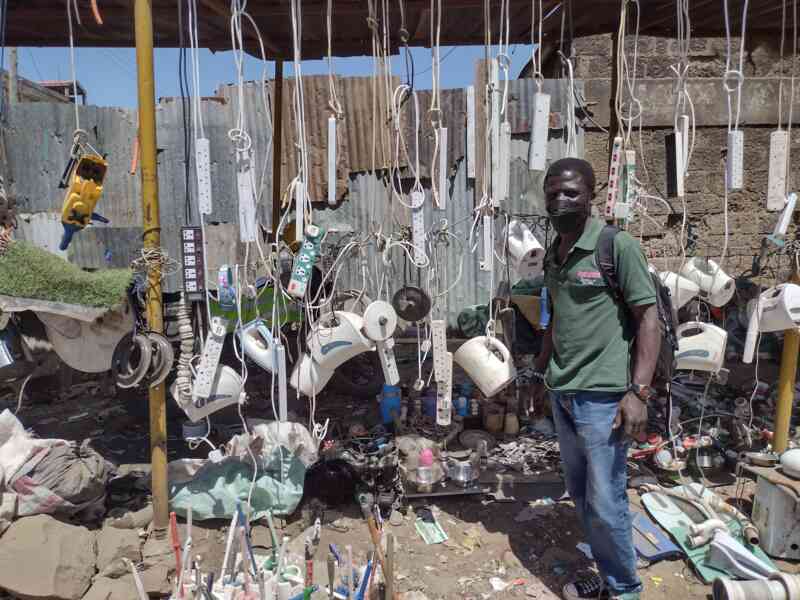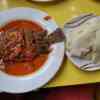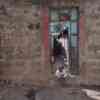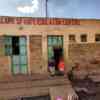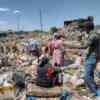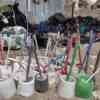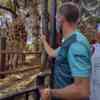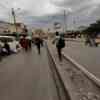I had been dreading this flight. Even though I do enjoy, quite literally, the occasional jump into the cold water (especially when it's 30+ C outside) I have learned to prefer the often rather soft and slow change in culture that defines the very nature of bicycle touring.
My last flight in 2019, from Almaty to Delhi, had left me kind of shocked and I more or less had hidden in a hostel for 2 weeks, overwhelmed by the noise, dirt, chaos that is India.
So why do this in the first place, and why now? The answer is, of course, Covid19. Already at the beginning of 2021 I feel like I have spent far enough time in Europe (and Turkey). However without vaccination I also don't want to venture far from Europe. Finally on a wonderful day in June, I'm lucky enough to get my J+J shot in Bulgaria. Now there is no more excuse to hold back.
Looking at the list of countries open for travel, the choice of which continent to go to isn't really a difficult one after all: Africa it shall be!
A few days later the flight is booked as well. Due to ongoing fights in the North of Ethiopia it won't be possible to enter via land from Egypt. So I decide to skip Egypt and Ethiopia altogether head to Kenya straight away.
The most connections are leaving from Istanbul and after some hours of price comparison and googling of luggage restrictions I decide on an Egypt Air flight. My only worry is a layover in Cairo. Will my luggage make it through?
From Istanbul to Nairobi
My trip to Africa starts already in Luleburgaz, Turkey, where I had spend a couple of nights in the awesome "bike academy". The town is some 2 hours by car from Istanbul Airport but it just wouldn't have made sense going to Istanbul again: the transfer time from Istanbul city would've been the same anyways.
The biggest challenge is sourcing the bags to wrap my Ortliebs in: the "Chinese shopping bag" that I usually use to fly is nowhere to be found. In the end, I buy a few potato sacks and wrap them tightly around the bags. That'll do... hopefully!
At the airport I am several hours early for check-in. Ample time to increase my nervosity and anticipation. The check-in is seamless and the agent even offers me to check my 3rd piece of luggage for free, unaware that I paid 140 EUR in advance just to be within the required weight/piece limit. Oh well. One of my luggages disappears on the conveyor belt, bumping against several iron bars on the way. Did one of the barcodes already get ripped of? I'm starting to sweat...
Of course, all documents are checked a million times. Before check-in. During check-in. During boarding. Visa. PCR test. Passport. Boarding pass. PCR test again. As soon as I put a paper away, someone asks for it again.
The flight itself is uneventful. During the stopover in Cairo, of course the hand luggage is screened again and I lose all 3 my lighters which are suddenly not allowed in carry-on anymore. Not worth making a fuss over it but I'm pretty sure the guy doing the screening will keep them for himself.
Few hours later in Nairobi. When I clear immigration, my bicycle box is already waiting for me at the oversized luggage aread, together with another one of my luggages. But where is the last one?
Just 1 minute later it arrives on the regular luggage belt. Everything is here! I can't believe it
Being picked up from the airport is nice...
As I am arriving at 4:00 o'clock in the morning I knew I'd be tired, and the very last thing I want to do is having to assemble my bicycle (and the partly disassembled bags) in the middle of the airport and start cycling into a busy city at the sight of dawn.
So I've chosen the comfortable option, a transfer from the airport to my B&B by my hosts. That works surprisingly well, as both my flight and my driver is on time.
However we haven't even left the airport parking lot yet when the first police officer appears, "asking" for a bribe. My hosts are unimpressed an mostly annoyed, and after a few minutes discussion and inspecting the car's papers, we take off without paying anything.
I'll spend the next 2 nights just South of Nairobi in Syokimau, before I will move the the city center.
Nairobi/Kenya- first impresssions
The weather is perfect! At an altitude of 1700 m the temperatures are around 20 C, a real treat after weeks in the high 30s. Also, there aren't many mosquitos. Yes, 2 or 3 every night but nothing like I had feared.
The traffic is a nightmare, even before reaching only the city outskirts. Cycling into Nairobi from the South I have to pedal along Mombasa road, an under construction highway which is notoriously jammed with cars.
In the city, most streets are quite narrow and wherever there's sidewalks they are packed with street sellers, people or they are just in too desolate condition to walk on. Often people chose to walk on the road instead, dangerously meandering in-between cars and buses while inhaling the dark black or ash gray exhaust fumes. The pollution is rampant and on par with Delhi. Outside of the city center, the street sides are full of garbage.
Everything is "high security". Most supermarkets, all banks, some cafes and in some parts of the city even bakeries or ice cream parlors have security personnel stationed outside. In one hotel, a man in uniform with a machine gun is casually sitting on a plastic chair in the hallway. Residents often live in walled-off compounds who can only be entered passing the guard. Small shops, hotel receptions, rooms are protected by iron cross bars and resemble a prison cell more than anything else.
Nobody eats outdoors, in public. When I do I quickly "lose" half of my sandwich and an apple to beggars. Many people do explicitly beg for food, not for money.
On the bright side, there is very little honking! The people seem more relaxed, calm (as opposed to India). The buses and some shops often blast African bongo dance music, creating a party-like atmosphere. The people are easy to interact with because virtually everybody speaks decent English.
That has to be the best part of all, coming into Kenya from the Balkans/Turkey: there's practically no language barrier. All signs, advertisements, descriptions are in English and while locals do talk Swahili to each other I have yet to run into someone in Nairobi who doesn't speak English (surely that'll change when leaving the city).
Meeting the locals
Yes, people are really approachable. Naturally as a white man in East Africa I do visually stick out, just like I did in Asia. On a loaded touring bike even more so. However for 95% I'm just an odd attraction while the rest will catcall me "Mzungu" (White man) or "Mr John" and maybe ask straight: "give me something!", "buy me a tea".
Bearing in mind the economic pressure and poverty that is everywhere to see it is wise to be careful when approached by people offering their (often unwanted) help with mundane tasks such as finding a hotel, because there is very likely an expectation of a reward of sorts. Therefore I am rather skeptical when I am approached by a man while I'm sitting in Uhuru park.
He introduces himself as Cyrus, self-employed electrical repairman and volunteer pastor, who makes his money by buying defective laptop power supplies and -- after repair -- reselling them to the dozens of small computer shops all over Nairobi. We agree to have breakfast together the next day after which he offers to show me around Nairobi.
I get to see his neighborhood, where he currently lives: a hostel-like building where he rents a windowless room for 300 Kenyan Shilling (KSH), approximately 2,30 EUR per night, that is barely bigger than a bed. We then pass his future home, where he wants to move some day in the future: a government subsidized compound with high-risers, each one with hundreds of small apartments. 1.500.000 KSH /11.600 EUR he will have to pay to own the apartment, half of which is already paid. Unfortunately he can only move in when the price is paid in full.
We pass by a small market where suddenly Cyrus starts shouting, switching between Swahili and English: he's bringing the "word of god" to the people. Unlike other wandering and preaching men he doesn't ask for donations but just tries to give people hope by spreading words of advice and encouragement. Almost all of the sales people we will meet later on are women and they happily take the chance to have a word with him.
Visiting Kibera
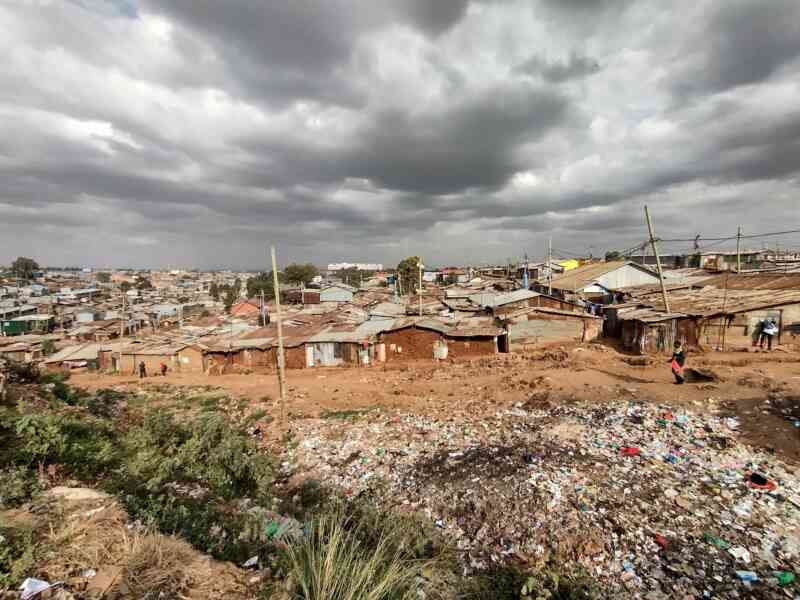
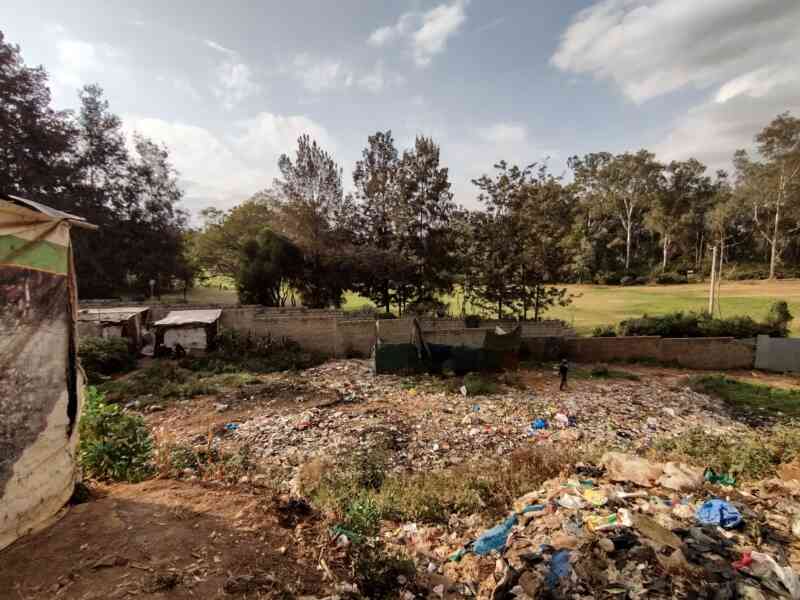
The Kibera slum is--according to the most recent estimates with 200.000 inhabitants--the biggest one in Kenya. Cyrus comes here several times a week and is immediately recognized wherever he goes. This is where he buys the damaged electrical components from street vendors, which he then repairs and resells to the dozens of small computer hardware stores in town.
We proceed to follow the train tracks which run through the slum, along which many vendors offer all kinds of goods, many of them apparently sourced and recycled from garbage dumps.
Despite being a slum, all kinds of businesses are thriving here. From the usual sellers of produce to builders of furniture. Children go to school or church. The odd car makes its way through.
On the matatu
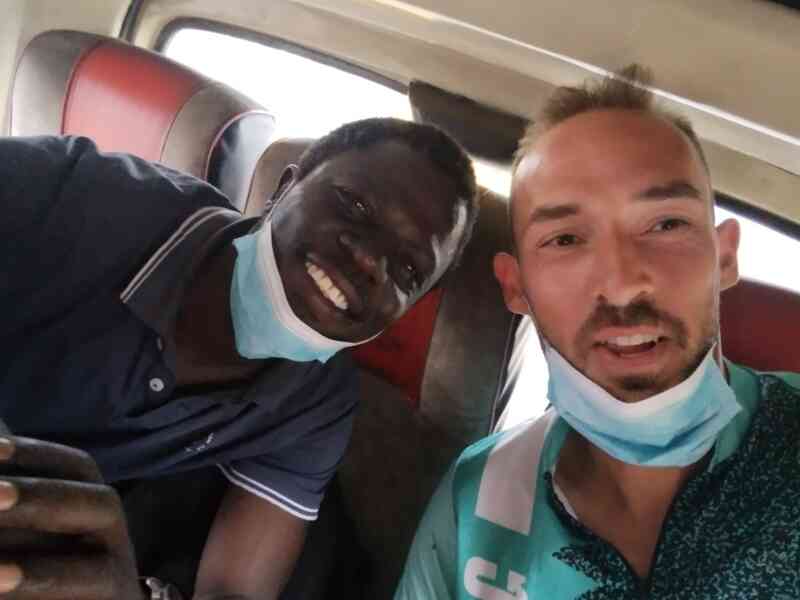
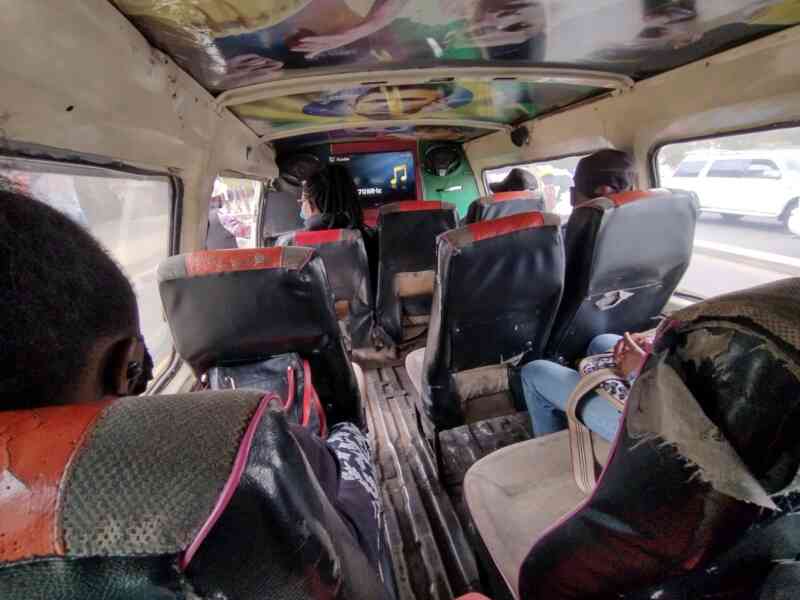
In order to reach the slum we take a Matatu, the Kenyan minibus. While the Matatus follow fixed routes, the price depends on the traffic: the busier the roads, the more expensive the ride. Today we pay 50 KSH each for a 30 minutes ride to get to the slum's entrance. That may seem cheap, but considering the horrendous state most buses are in one may easily pay a much higher price in case of an accident.
As the driver and his assistant get to keep the fares, they have an incentive in getting as fast as possible to their destination while carrying as many passengers as allowed. Guess What that means...?
The someWhat erratic driving, partially next to the road instead of on it, almost makes me reconsider my beliefs. The huge potholes or sections under construction send me and the other passengers flying. Comfort is non-existent. In the rear of the smaller vans I even have to tilt my head: sitting upright just isn't possible!
